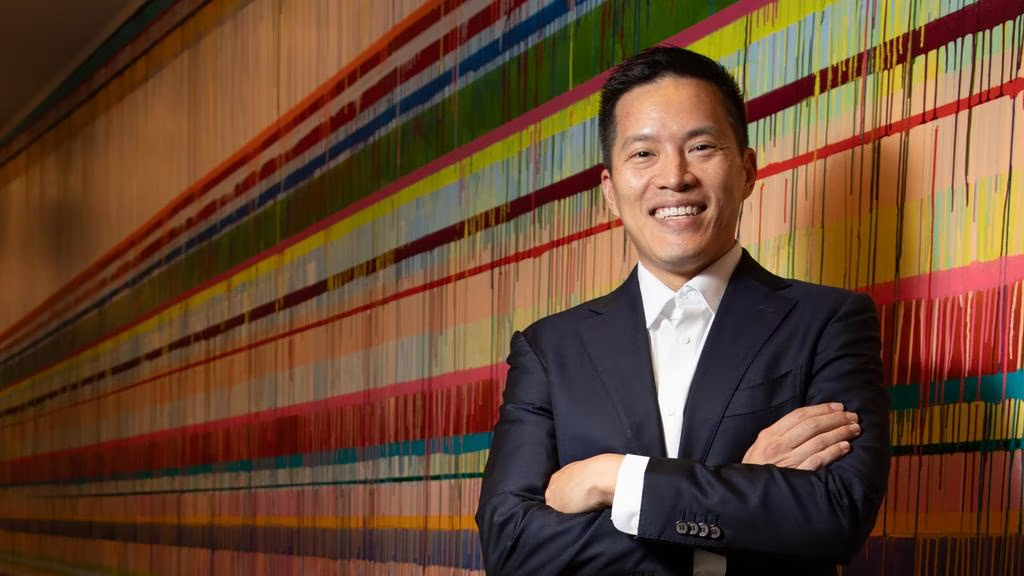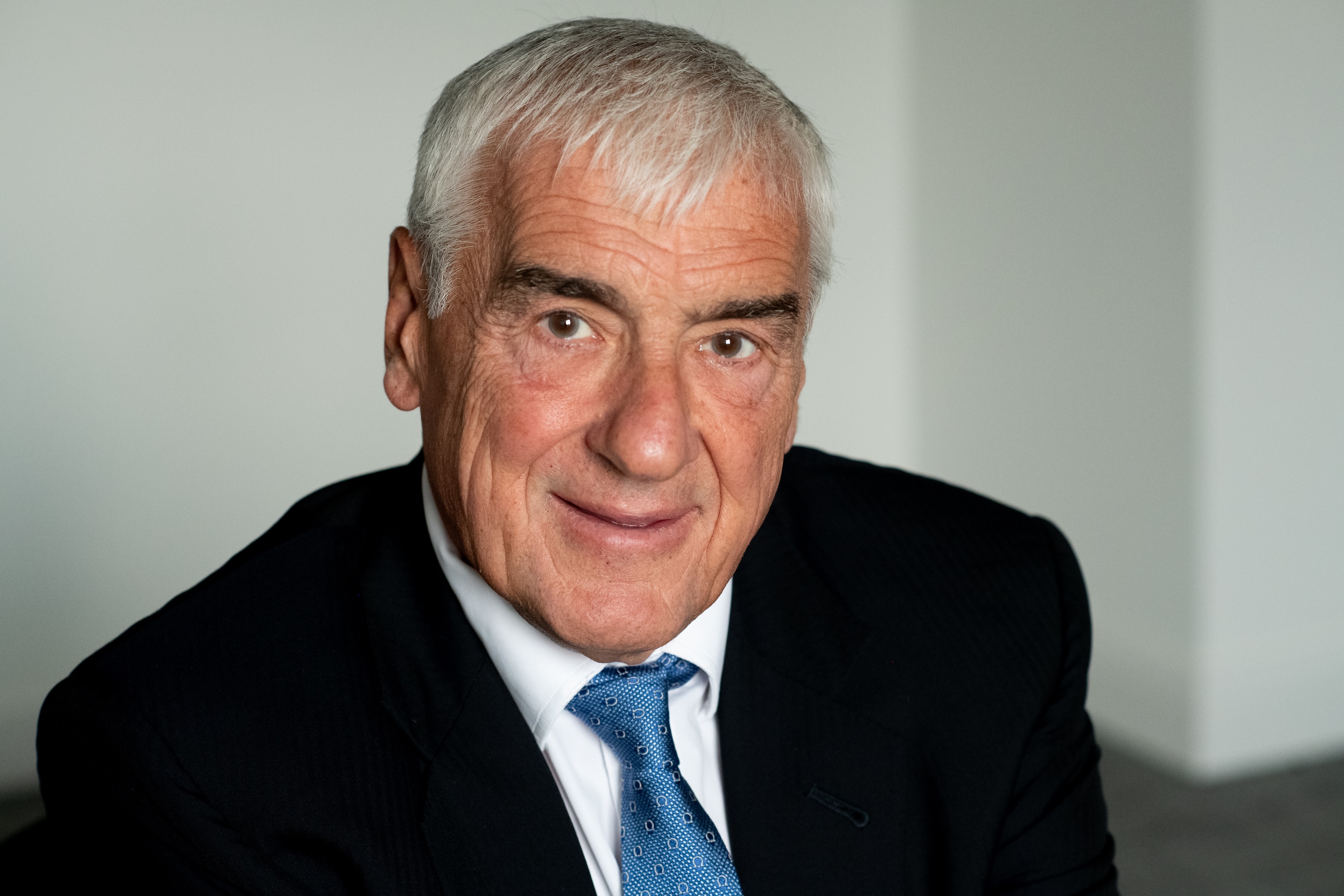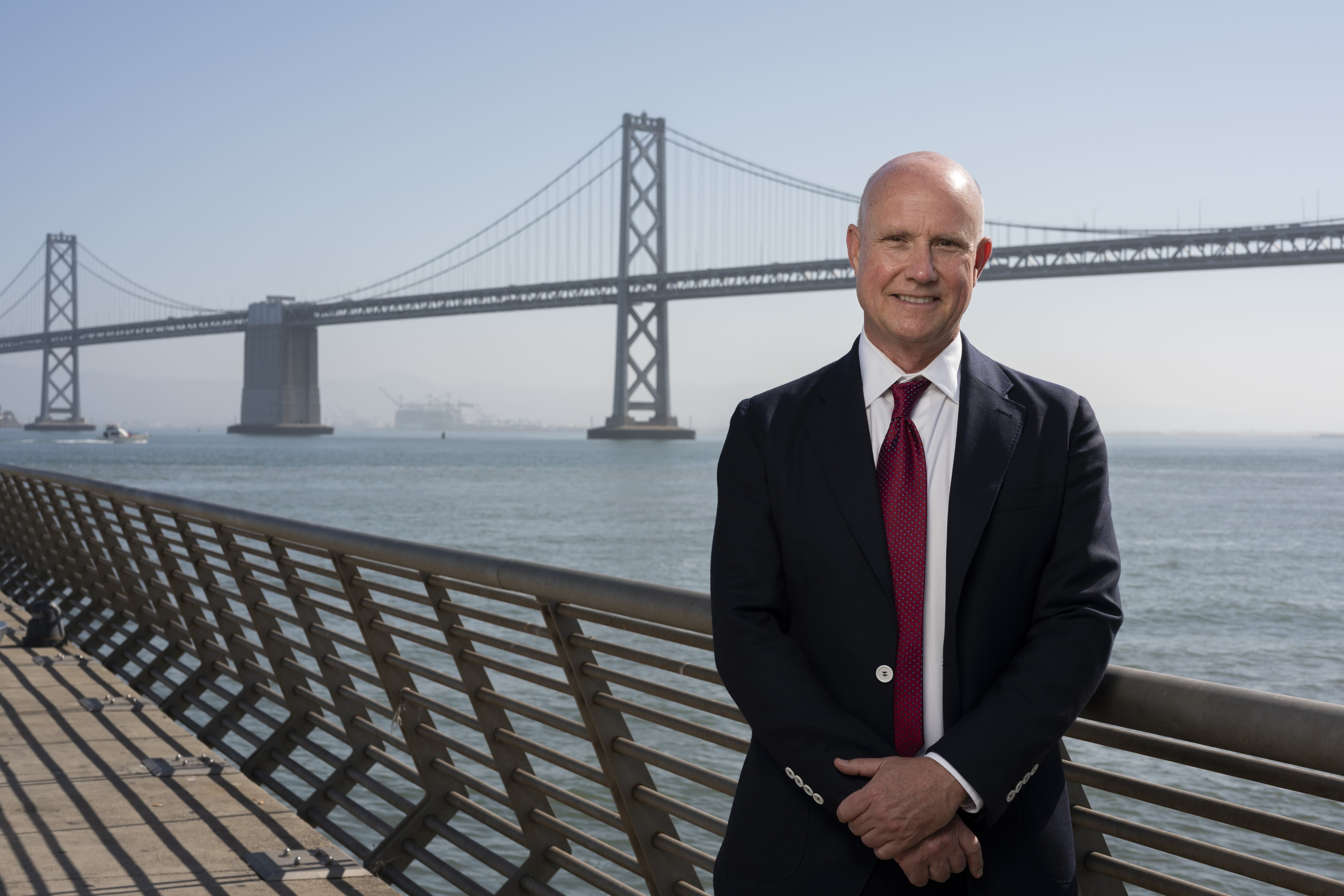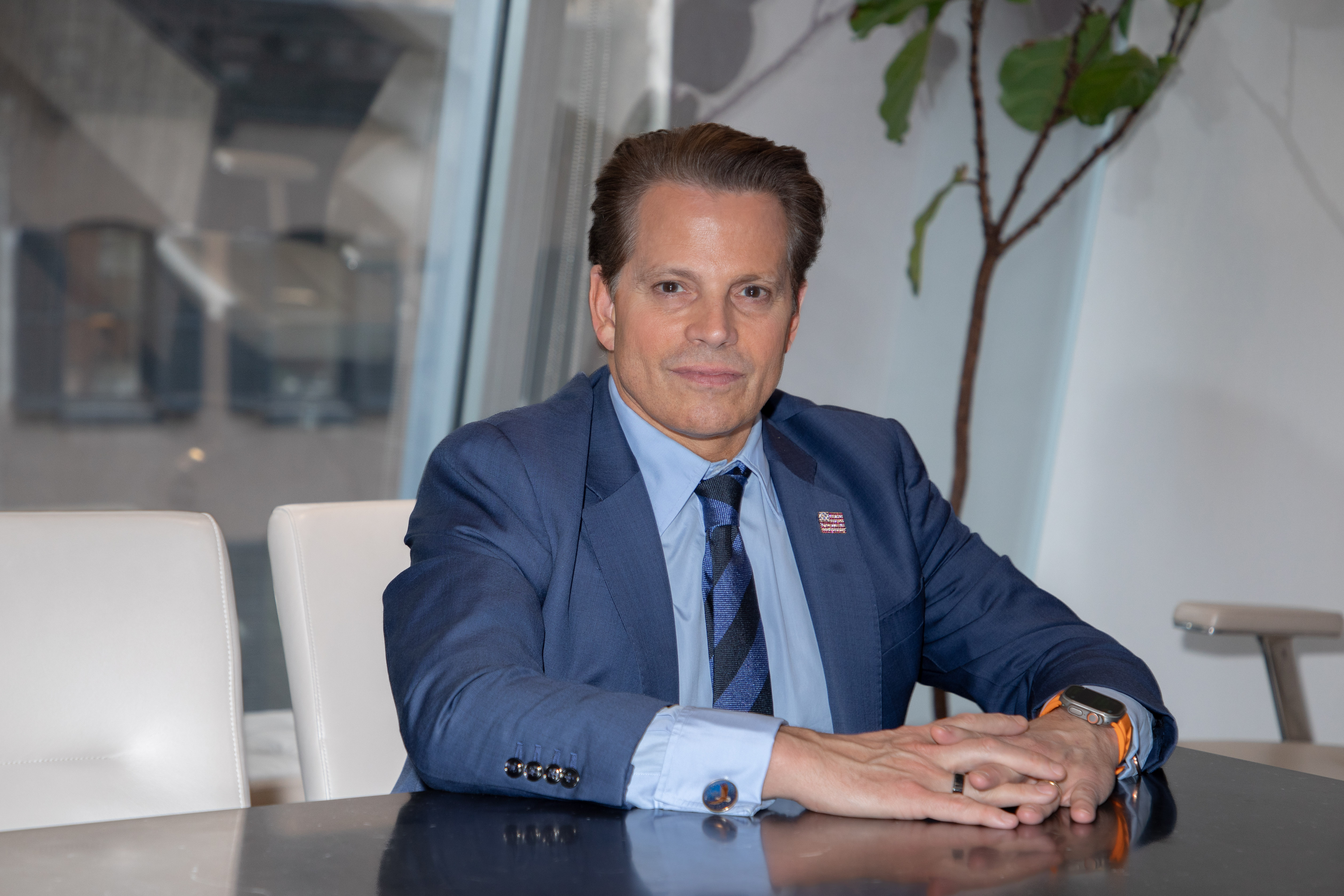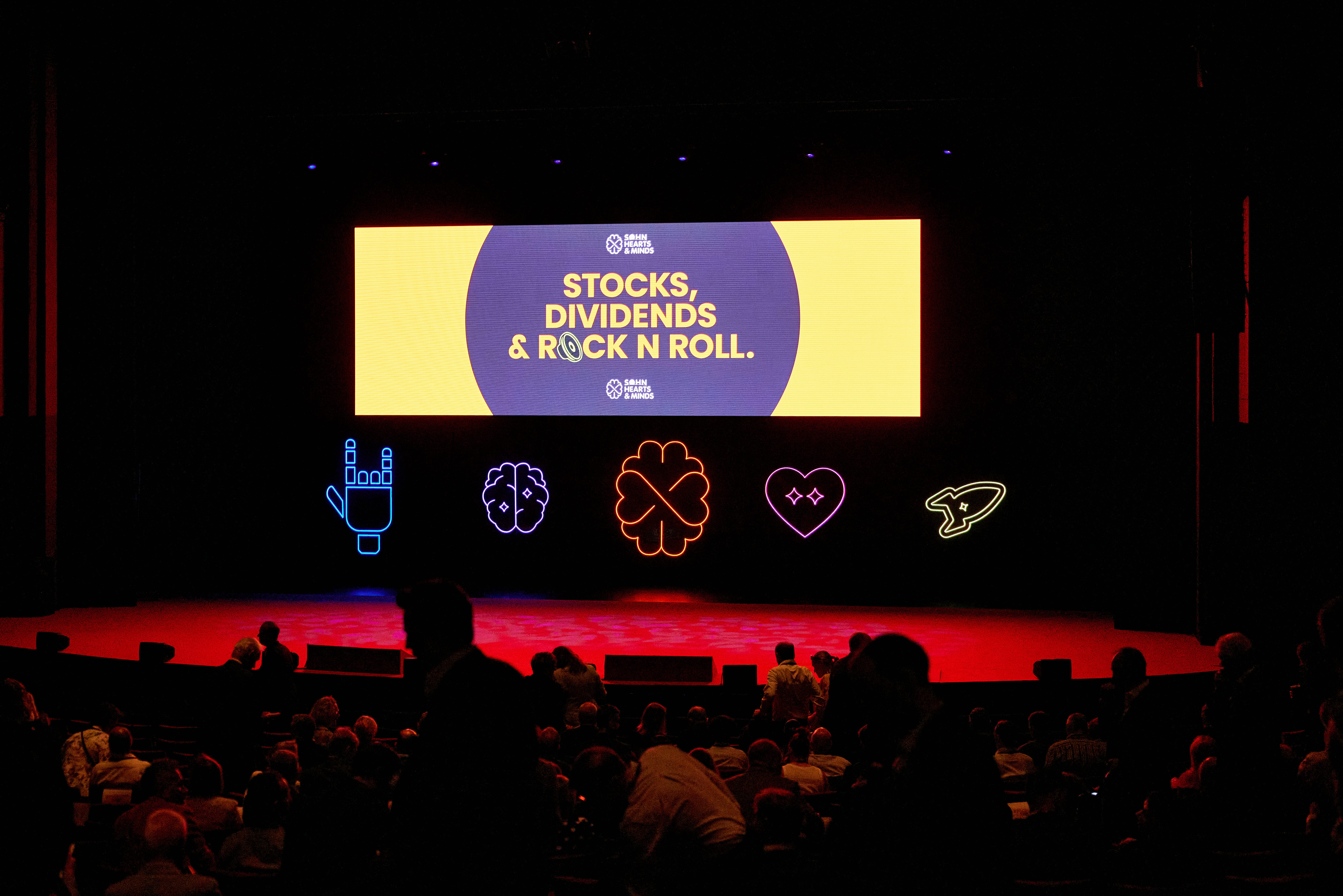Veteran fund manager Peter Cooper doesn’t want to hear the word retirement.
Many of his contemporaries might be selling up, stepping down and scaling back, but the 63-year-old says the second and best chapter of his investment career only started six months ago, when the era of cheap money and easy asset price rises came to a screaming halt.
“I can’t wait for the next 30 years, because it’s a serious movie here. We aren’t sure how this ends in terms of the change in so many areas,” he tells The Australian Financial Review.
“The opportunities are just amazing out there going forward, because of this rotation.”
Cooper’s enthusiasm is all the more striking because of his background and his approach to investment – 30 years of experience in financial markets and his deep study of human psychology have taught him anything that looks remotely like hubris is bad news.
But his confidence is borne of the idea that Cooper Investors, which manages $10.5 billion and was established in August 2001, has the tools to win in this new era.
Partly, that’s about the firm’s deep industry knowledge, its systemised approach and its owner-operator culture that in many ways borrows from the companies Cooper likes to invest in most.
But it’s also about Cooper Investors refusal to be one thing or another, and its preparedness to seek out the nuance: it’s neither a growth or a value investor, nor a quantitative or qualitative one. Markets and the macro environment will shift, Cooper says, and the firm has to be able to find what he calls “multiple sources of value”.
Ebb and flow
At different times, that will mean tilting towards growth companies that trade on old-fashioned multiples, low-risk turnarounds or real asset plays that will hold up well in certain economic conditions. The key is to observe how industries, economies and political philosophies are shifting, and be ready to shift too.
“I like to say the money has to go somewhere,” Cooper says. “There’s always positive trends, there’s always negative trends. I do think about life and investing through that lens of ebbing and flowing.”
Even the biggest companies on the exchange go through these cycles. While BHP and Macquarie Group are mainstays in many portfolios of Australian investors, and companies Cooper clearly admires, there have been moments in the last few decades when they stumbled; Macquarie tumbled more than 80 per cent in the GFC, and 50 per cent in the COVID panic of early 2020, while BHP shares halved in 2008 and again between 2014 and 2016 as the commodity cycle turned against them.
During these down periods, the tendency is to panic. But for Cooper, that’s counterproductive. Nothing is ever quite as good as it seems, or as bad.
“There’s multiple truths and there’s always opportunities and risks. What I’ve found in my career is that catastrophisation, with a bit of black or white thinking, can really get you off track. And it gets contagious with a group,” Cooper explains.
“One of the tenets of our investment philosophy is observation, not prediction – it’s a quantum physics concept. See truth for what it is, without all the incredible psychological pressure to kind of socially conform to the consensus worldview.”
This can be extremely difficult, of course, when the media, analysts and even your own clients are all heading in one direction. But this is where Cooper Investors needs to fall back on its systems, process and culture.
“It’s challenging to actually be still enough to see what is actually going on under the bonnet.”
A perfect example of this is one of the most controversial and beleaguered stocks on the ASX right now, which Cooper Investors has recently been buying across its Australian equities fund and its Brunswick fund: casino operator The Star Entertainment Group.
Cooper says his firm have become specialists at what he calls low-risk turnarounds – finding fallen companies where value can be created by the combination of a reversion to previous performance and execution on each growth wins that Cooper describes “the second and third wave of low-hanging fruit”.
Backing a fallen Star
The trick, of course, is to find the low-risk situations and avoid the turnarounds that never quite get back to their previous levels.
For Cooper, the numbers help explain why Star is a low-risk turnaround. “Star’s worth more than its share price, even without the licence, because of its property,” he says.
But stepping back from the current scandals engulfing the company and those other growth opportunities emerge.
One of Cooper’s favourite investment thematics is what he describes as the hubris-to-humility cycle. Hubris, he says, happens in many industries, including funds management, and it almost always ends badly. But the worse the problem, the quicker the shift to humility.
The scorching regulatory scrutiny that Star has been under in the last 12 months will likely see it emerge as one of the best-run casino companies in the world under new CEO Robbie Cooke, who Cooper says is “the perfect guy for that job”.
A clean-up Star could attract a bid from a cashed-up gambling giant or private equity group, as Crown Resorts did, is very real, Cooper argues.
But even if that doesn’t happen, Cooper believes the Star provides a smart way to play the post-pandemic tourism rebound that the NSW and Queensland governments will be desperate to see.
Cooper says the expertise his firm has built up in low-risk turnarounds, which is not a million miles away from private equity investing, is not well appreciated in the broader market. But in many ways it captures the multiple levels on which Cooper Investors hunts value under a formula Cooper and his long-time investment partner and friend Andrew Swan have been developing for most of their careers.
An hour with Cooper, a veteran of Merrill Lynch, BNP and the NSW State Superannuation Investment and Management Corporation, involves a fascinating and stimulating journey through everything from biology through to behavioural psychology and quantum physics.
Cooper will speak next month at the Sohn Hearts & Minds conference in Hobart, which raises money for medical research, and it’s a fair bet his presentation will go well beyond facts and figures on certain stocks.
This is not to say that Cooper comes across as some high-minded academic; Cooper Investors follows a universe of about 100 Australian stocks and 200 international ones, and you get the sense he knows the ins and outs of each one. But this column happily admits the widely read Cooper has taught him a new word.
The Cooper formula
Consilience is a term used in science and history to describe the principle that evidence from independent, unrelated sources can converge on strong conclusions. It’s also the name of a 1998 book by E.O Wilson, a biologist who studied ants – yes, the little black things – and discussed ways that the sciences could be united with the humanities.
Cooper happily admits to having lifted the idea of consilience from Wilson, before bastardising it ever so slightly for his own purposes. “Everything that comes out of my mouth has been borrowed from somebody else,” he happily admits.
In the investment vision of Cooper Investors, consilience occurs by building relationships with the leaders and experts that matter at the coal face of a given industry. But more broadly, it sums up what might be Cooper’s central belief in observing and measuring multiple data points to reach conclusions.
This feeds the firm’s investment process, which it calls VoF: value latency; operating industry and strategic trends; and focused industry and management behaviour.
The value question is largely quantitative and involves an examination of the company’s operating performance: what does cash flow, growth options, assets, risks and the cost of money say about the value opportunity?
Industry structure and trends are a mix of qualitative and quantitative: what are the themes, milestones, catalysts, events and corporate actions that will help deliver the value latency identified?
Focused industry and management behaviour is most subjective: what is the quality of the company’s management?
It is here where Cooper believes his firm has the biggest advantage: the shoe leather spent over decades to build up contacts and meet with management teams has even more value in a world where everyone in the market has so much qualitative data on every stock.
“In the world of digitisation there is no doubt the value of networks has not gone away – it’s actually gone up,” Cooper says.
The numbers suggest Cooper’s Melbourne-based firm Cooper Investors, which manages $10.5 billion, has had a good decade; it’s flagship Australian equities fund has produced an annualised rolling 10-year return of 11.85 per cent, 3.62 per cent ahead of its benchmark, while the Brunswick fund (75 per cent local equities, 25 per cent international) has delivered 14.06 per cent, 5.65 per cent ahead of its benchmark.
Cooper says the firm’s had its shares of winners in the past 10 years, but it’s clear he’s more excited about the coming decade, and the chance to apply the firm’s investment philosophy and system in a time of great uncertainty, where the temptation of those in the market to overreact will create opportunities.
A new era
“There’s so much we don’t know, and so it does feel different in terms of my career because so many of these risks are very macro. How do you analyse the mind of Putin and Xi, who have changed the shape of the world? And what next?”
Even leaving aside the war in Ukraine, Cooper says the question of how the world’s energy mix will change – or not change – is a big one for investors to digest.
Regulation is another source of opportunity ... “The regulatory and governmental claws into society and business have just never been bigger and more influential,” he says, and that will create winners and losers.
For example, he believes he’s found a winner in the ASX-listed property group Lifestyle Communities, which Cooper says will benefit from governments focused on affordable housing.
Cooper has been a long-term and perpetually frustrated investor in Lendlease, but believes it can be a winner from rising regulation, too. “The IP [intellectual property] it has in environmental issues, infrastructure issues, town planning, urban renewal is world-class stuff.”
Of course, a new environment like the one Cooper describes is dangerous too – investment mistakes will be costly.
Cooper says he has known big periods of underperformance in the past and says it’s rarely big macroeconomic changes that trip fund managers up, but rather good old-fashioned human error. His focus is on sticking to what makes Copper Investors work: system, values and culture.
“When people talk about attribution, they’re talking about their stocks. They never talk about these other things, which are really important.
“Application of the system is something that we just talked about endlessly in here. You get better at it, but it’s very difficult, because what you’re talking about is behavioural change, dealing with the neurological hard wiring of the human being – wanting to be loved, wanting to get in the pub and spruik the winners, and not wanting to talk about your losers. It’s just human nature. We’ve spent a lot of time on this and frankly became a bit obsessed by it.”
This is partly why Cooper says the sale of the firm is not on the cards. The fact the firm is owned by its employees – “the farmers doing the farming, and eating the produce,” as he says – is integral to its culture.
That’s not to say Cooper is blind to issues of succession. He’s spent the last five years thinking hard about the topic and developing the next generation of fund managers in the business – these include Chris Dixon, Justin O’Brien, Allan Goldstein, Amos Hill and Frank Podrugat, and Natalie Elliott, who runs the firm’s private capital division – and is in the process of hiring a chief executive to run Cooper Investors.
Cooper will remain chief investment officer, but says it will become a more focused role with the appointment of a CEO. “Where I see myself adding value is with culture, developing, mentoring, accelerating and igniting stuff around that investment philosophy.”
Cooper published a 180-page book on the firm’s philosophy and culture some years ago for internal use, but he wants to refine this into a 30- or 40-page book that he’s considering publishing more widely.
In a world where private capital is ascendent, Cooper is also thinking how the firm’s long-only equity investments could be applied to a private capital model. There are companies in the group’s Australian equities portfolio that he believes could be well served by being privatised, and he’s keen to explore models whereby Cooper Investors could remain a shareholder.
“The work we do is private equity-like in some areas,” Copper says, pointing to the three capital pools in the Brunswick fund – compounding growth companies, quality turnaround and bond-like equities and asset plays – as illustrative of the sorts of areas where Cooper Investors could add value in private markets.
“There’s lots of exciting things in the adjacency department.”
This article was originally posted by The Australian Financial Review here.
Licensed by Copyright Agency. You must not copy this work without permission.
Disclaimer: This material has been prepared by AFR, published on 31 October 2022. HM1 is not responsible for the content of linked websites or content prepared by third party. The inclusion of these links and third-party content does not in any way imply any form of endorsement by HM1 of the products or services provided by persons or organisations who are responsible for the linked websites and third-party content. This information is for general information only and does not consider the objectives, financial situation or needs of any person. Before making an investment decision, you should read the relevant disclosure document (if appropriate) and seek professional advice to determine whether the investment and information is suitable for you.








